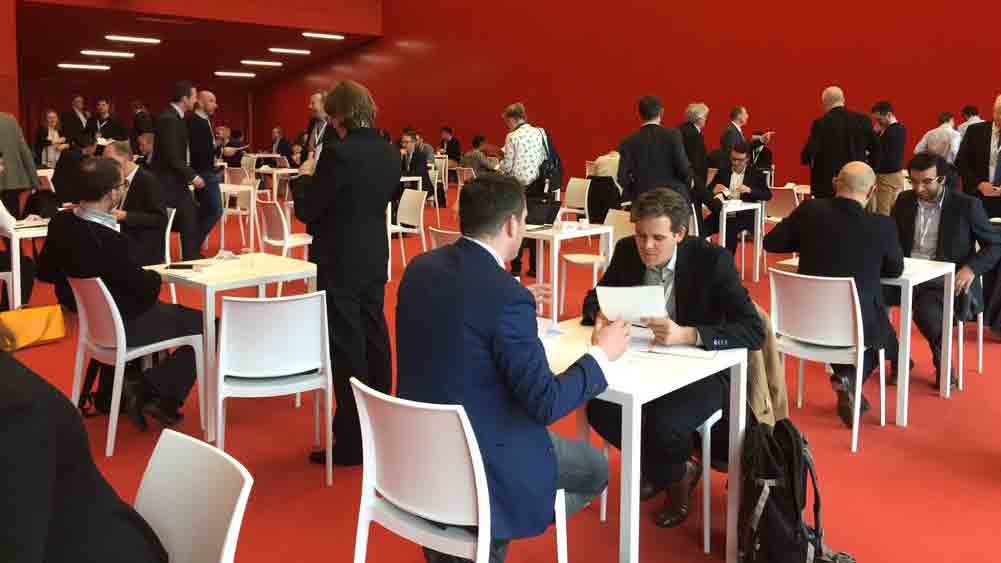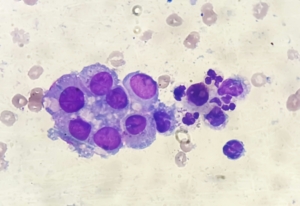
Bioprocessing challenges in the focus
About 300 bioeconomy experts from science and business came together in Strasbourg for the first edition of BIOKET to discuss up-scaling challenges, new processing technologies as well as the potential of synthetic biology and digitalization.
The first edition of BIOKET, the BIOeconomy ‘s key Enabling Technologies conference, organized by the French IAR cluster in the exhibition center of Strasbourg from March 7 to March 8, attracted a total of 300 participants, demonstrating the need for an event with a special focus on bio-based processes and promising technologies in this area. We are very pleased to see so many interest in this event format, bringing together experts from the academic institutes with companies and service providers to discussions at eye level, said Yvon le Henaff, Chairman of the French Bioeconomy Cluster IAR. The network represents about 370 stakeholders in the GrandEst region of France and is home of a dozen demonstration plants to replace petroleum-based raw materials with agricultural, forestry and algal resources. In addition, the cluster developed a database which can be used as a research tool about bio-based products and bioeconomy suppliers.
With more than 50 international speakers from Europe and the US, the two-day conference covered the whole range of major challenges from the adaptation and optimisation of technologies and transformation processes to fully valorise all biomass fractions. The potential of Industry 4.0 was among the topics particularly highlighted. Ivan Stjepanovic from Germany industry concern Siemens explored the potential of digital technologies to improve and simplify industrial plant design and operations. Digitalization helps to parallelize different parties involved so that time savings between 30 up to 60 per cent are achieved, he pointed out. Siemens has developed a proprietary IoT ecosystem with 3D visualization, machine learning tools and cloud-based systems around a major data hub helping to rise effectivity and productivity as well as to lower costs for setting up new industrial plants and for running operations. In addition, clients profit from a variety of customer-specific app developments.
During a round table, moderated by Michael Krel, Principal from French biotech investor Sofinnova, the challenges of up-scaling bio-based processes was discussed by Ena Chan Cratsenburg, CBO from US-based synthetic biology experts Gingko Bioworks, among others. She underlined, that the importance of finding the right CMO should not be undervalued. Gingko Bioworks currently experiences strong growth. In late December 2017, they secured $275m in Series D funding from previous investors Viking Global, Y Combinator’s Continuity Fund, Cascade Investment, Bill Gates, as well as new investor, General Atlantic to build out its Bioworks3 production facility which has started work at the end of 2017. For this year, further growth is expected. In 2018, we will start to set up a Bioworks4 facility. Our aim is to explore the potential of our technologies in further markets, Cratsenburg told European Biotechnology Magazine. In a session dedicated to the advancements of synthetic biology, her colleague Patrick Boyle, Head of Design at Gingko, presented insights of the technology platform. Other US-based companies such as Twist Bioscience and Arzeda talked about approaches to use synthetic DNA as a biological storing units or for crop optimization and to build new industrial enzymes from scratch within 3 months.
The conference program additionally highlighted current trends related to the pretreatment, the conversion and the functionalization of biomass as well as its extraction, separation and purification. In addition, process modeling, analytical methods, bioprocess design and fermentation technologies have been in the focus of the 12 parallel sessions during two days.
About thirty exhibitors, such as French companies De Dietrich, Novasep, Prosim, Ypso-Facto, SAS Pivert or ARD as well as from the Netherlands, UK and Germany, used the opportunity to present their competencies. The large variety of specialists covering different services offered for the implementation of pilot, demonstration and industrial-scale plants demonstrates that the growing bioeconomy in Europe has a high need for processing experts.
One day ahead of the main conference, participants had the chance to learn more about the opportunities of the European public-private Initiative BioBased Industries Joint Undertaking (BBI) and to meet relevant stakeholders via a B2B matchmaking system. In addition, local companies De Dietrich and Tereos offered site visits.


 Unsplash+
Unsplash+
